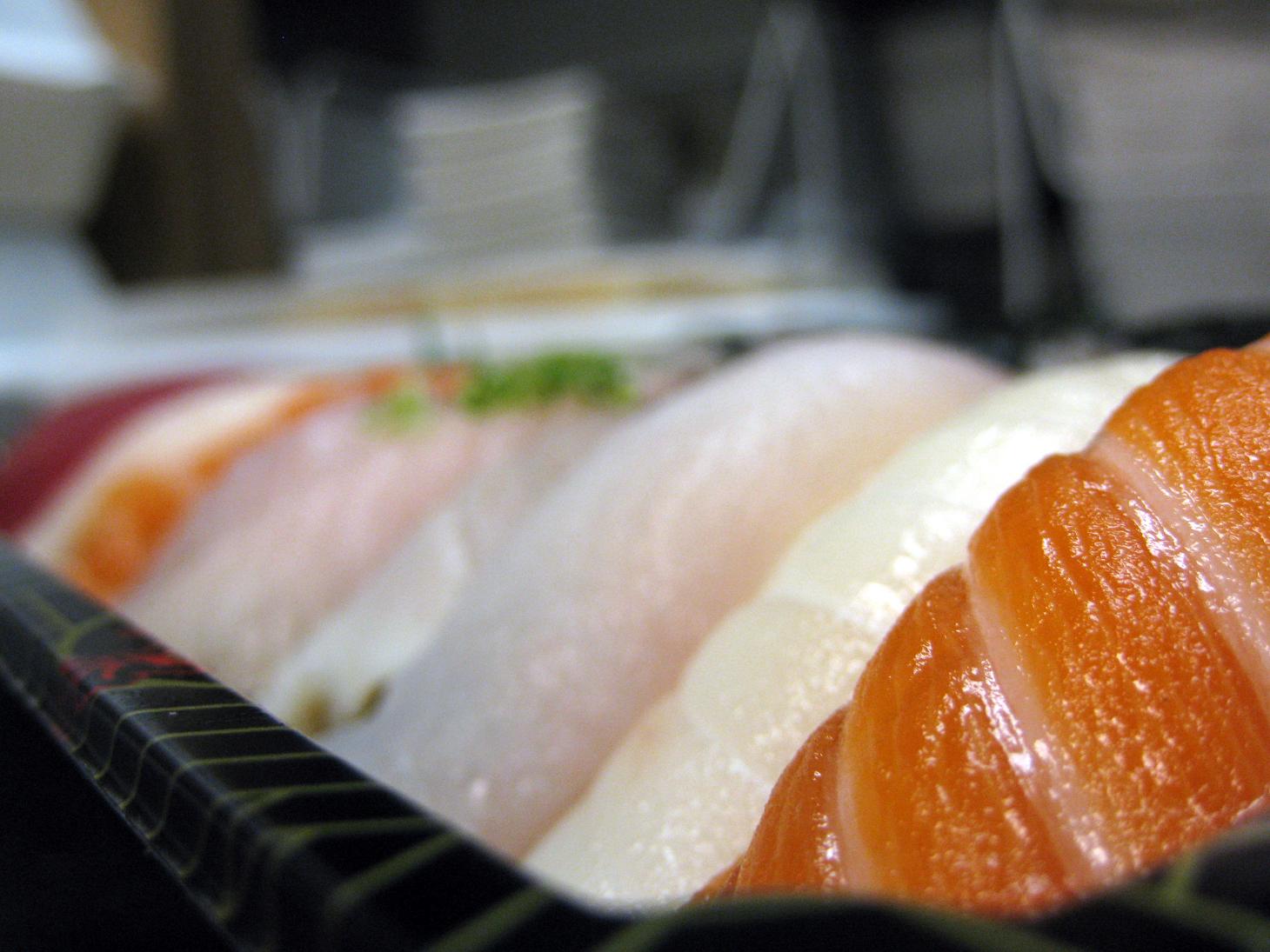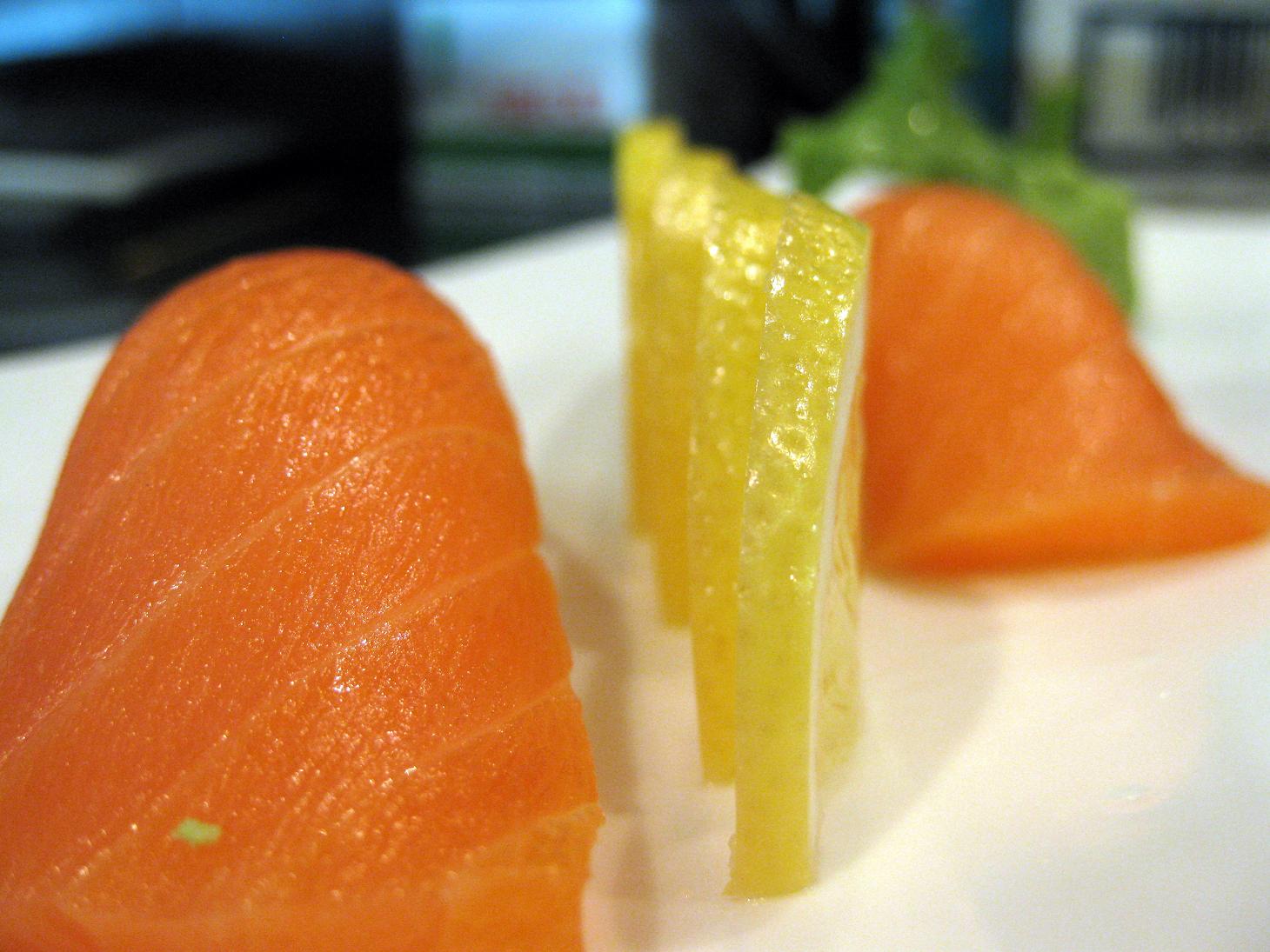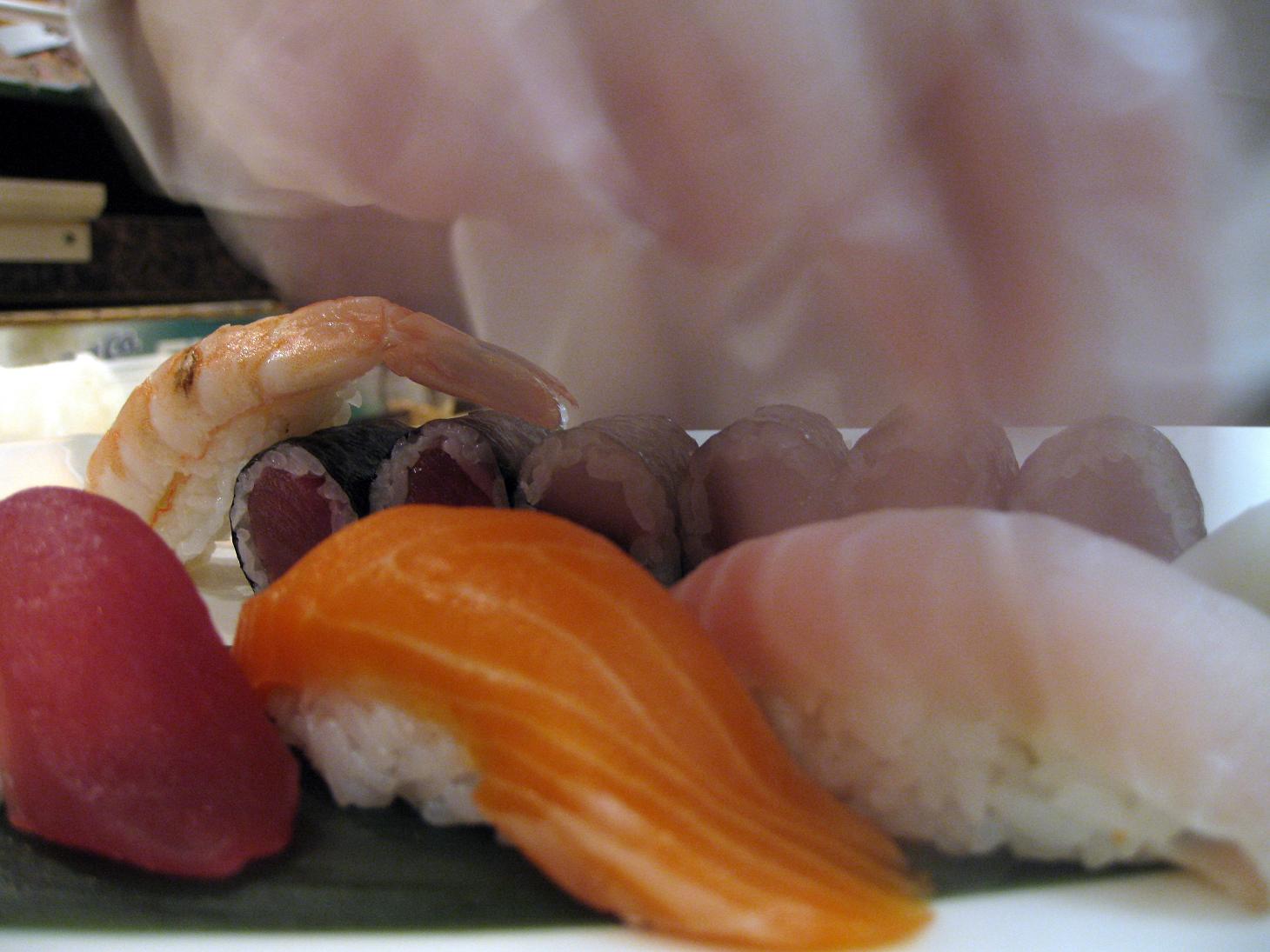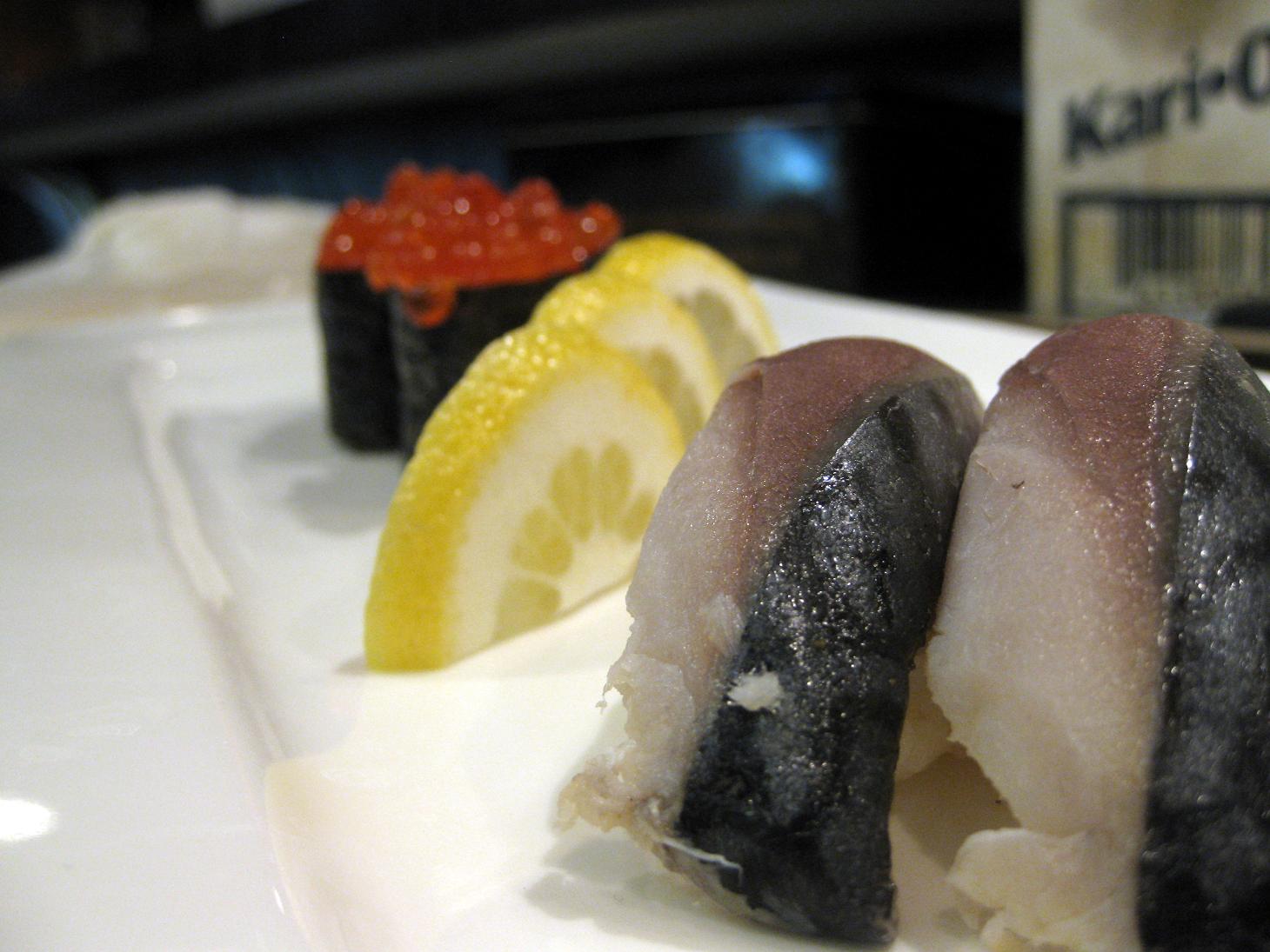He watched.
Caress with the index’s paddy flesh paddy, then square off the block of rice. With two fingers, shape it: give it a curl that’d make Goldie Locks blush; an arc so gentle baby’s bottoms gives it a rash. Rotate, and repeat. 21. 22. 23. Rotate, repeat. Rotate, repeat.
It takes 10,000 repetitions to achieve mastery.
26. 27. 28.
“Let me show you something.” From the bar, Joe come-hithers with a wagging digit.
He plucked the Saran wrapped rice finger without a raised eyebrow. The sliver of warm sushi rice, encased in a sheet of plastic would prompt questions from most, but it isn’t Joe’s first time. hardly
“It’s about being fast, right? You got to be quick, doing sushi. So when you first take the rice, don’t start by rolling it up into a ball. Roll it into a cylinder,” he demonstrated, whirling the rice morsel in his excuse for a right hand. It’s more the size and texture of a baseball mitt; dark and leathery, the color of chocolate, capable of fielding blinding hot grounders or crushing the skulls of children and smaller horses. It can get surprisingly surgical, too; his fingertips manipulate the grains more skillfully than a Boardwalk full of rice scribbling scribes trying to make a buck. In seconds, his sliver of rice is the correct proportion to top with sushi.
From there, he slipped into the Shaping Position, adding an arc that’d make Greek architects tear out their hair and bring the finest NBA 3-point shooters to their knees.
Joe’s sushi making was a streamlined methodology, one honed with his own 10,000 repetitions. He shaved off every possible millisecond and discarded every wasted motion from his procedure. He once managed Ichiban, a speedy sushi spot that churned out 200 plus checks on nights this restaurant clawed for triple digits. He saw his share of sushi before he quit, to open his café in downtown Albany.
“Owner of Ichiban, no good,” his girlfriend Tracy said a few days ago. “He make Joe do lot of work, and Joe have to make specials, too. But he always say, Joe, you not do enough work.”
“And Joe, he always outside,” she continued, “Talking to customer. So they thinking he owner. But Owner, he has to stay inside and cook, and get mad at Joe. But he not tell them this thing, they just thinking it.”
Joe’s ruddy face was serene as he continued explaining sushi’s finer points. He was either unaware or unmoved by his previous employer’s indiscretions. “The most important part of sushi is the rice,” he said. “The rice has to be right, and it’s got to be right the first time. You don’t get a second chance.” He imitated laying the rice to the fish. “When the rice touches the fish, it sticks because of the vinegar and the sugars. It won’t stick if you try using the same piece of fish twice. And when you roll, you got to roll with your fingers tips.” His mitts became cat claws, and he mimicked raking across the table. “Don’t do it like these sushi chefs; you can’t mash rice on the seaweed, you know? It’s got to be fluffy, or it’ll taste bad.”
He leaned back in the bar chair, and stared up at the television screen through his fashionably square glasses. “Oh my god, my master, he put me through hell like you wouldn’t believe. Eight months, and all he let me touch was the rice – wouldn’t even let me make a California roll. Would you believe that?”
Harder to believe Joe’s decision to give it all up, and turn his back on the time he invested into his training, the 10,000 and 100,000 and 1,000,000 repetitions he underwent to reach his current level. Mastery might lie somewhere in the 10,000 repetition mark, but how many more does it take to know this isn’t what you want? How long after working out the finer points before reaching the point where nothing’s fine?
Joe offered one more tidbit. “Oh, and sushi is supposed to look alive, okay? So don’t make it look like a brick; give it a long tail, so it looks like its swimming. Make it look like a fish.”
No one asked Joe for his advice. No one requested his expertise. But in his café, when he stands behind a deli counter, surrounded by cappuccino machines and milk steamers and triple-shot-espresso-soy-milk-no-foam-latte shenanigans, that mastery will amount to nothing. Offering the fruit from his labors is his one more last chance to make use of his skill set, before embarking on a new 10,000 repetitions.
He returned the sliver of sushi rice in the Saran wrap. It was still warm.
Photo Credit: Cedric Fischer











